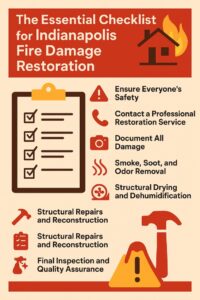Rehabs in India have emerged as vital institutions offering professional support and treatment for individuals battling addiction, mental health disorders, and other behavioral issues. With the rise in awareness about mental well-being and substance abuse, the demand for structured rehabilitation services has grown steadily across the country. These centers provide comprehensive care, combining medical, psychological, and social interventions to help individuals reclaim their lives.
The Growing Need for Rehabs in India
India is facing a growing crisis of substance abuse, particularly among the youth. According to reports from the Ministry of Social Justice and Empowerment, millions of people across the nation struggle with addiction to alcohol, opioids, cannabis, and other harmful substances. Coupled with the stigma surrounding mental health, many individuals do not receive timely help. Rehabs in India play a critical role in bridging this gap by offering a safe and supportive environment for recovery.
Types of Rehabilitation Centers in India
Rehabs in India are broadly categorized into government-funded centers, private luxury facilities, and NGO-operated establishments. Government centers, such as those run under the National Drug Dependence Treatment Centre (NDDTC), provide affordable care, often free of cost. Private rehabs offer more personalized and holistic services, with some high-end centers providing resort-like amenities. NGO-run centers often focus on community-based rehabilitation and may specialize in specific issues like alcoholism or teenage drug abuse.
Each center typically offers services like medical detoxification, individual and group therapy, psychiatric consultation, counseling, family therapy, and relapse prevention programs.
The Treatment Process
The recovery journey in rehabs in India generally begins with detoxification, where the individual is medically stabilized and withdrawal symptoms are managed. This is followed by psychological treatment, which includes therapies such as Cognitive Behavioral Therapy (CBT), Dialectical Behavior Therapy (DBT), and motivational enhancement therapy. Many centers also incorporate yoga, meditation, art therapy, and vocational training as part of holistic healing.
Family involvement is a crucial component of the rehabilitation process in India. Since family ties are deeply rooted in Indian culture, many centers offer family counseling sessions to educate and empower family members to support their loved one’s recovery.
Regional Availability
Rehabs in India are spread across major cities like Mumbai, Delhi, Bangalore, Pune, Chennai, and Kolkata, with increasing presence in smaller towns as well. The availability of multilingual therapists and culturally-sensitive approaches helps in better communication and treatment outcomes, especially in rural and semi-urban regions.
Challenges Faced
Despite their increasing relevance, rehabs in India face several challenges. The lack of regulation has led to the emergence of some unregistered centers with questionable practices. Moreover, social stigma, fear of judgment, and misinformation still prevent many from seeking help. There is also a pressing need for trained professionals, better infrastructure, and stronger aftercare support to ensure sustained recovery.
Conclusion
Rehabs in India are a cornerstone of the country’s mental health and addiction recovery ecosystem. As awareness grows and government support improves, these centers are evolving to offer evidence-based, compassionate, and customized care. Whether it is battling addiction or rebuilding mental wellness, rehabs in India are increasingly becoming a beacon of hope for individuals and families alike.









